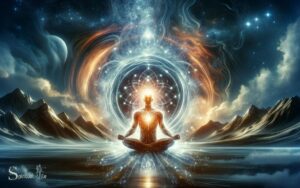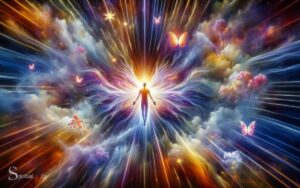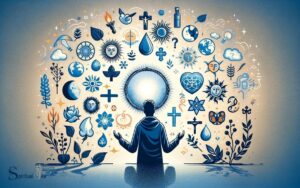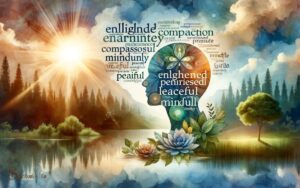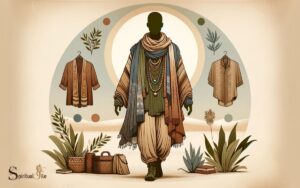Are You a Religious or Spiritual Person: Inner Peace!
As I ponder the question, “Are you a religious or spiritual person,” I can’t help but contemplate the depth and nuances of these two concepts.
For me, the distinction between religion and spirituality goes beyond mere semantics; it touches the very essence of my beliefs and values. From the rituals of organized religion to the personal quest for inner peace, the spectrum of religious and spiritual experiences is vast and diverse.
Exploring this spectrum can lead to a deeper understanding of oneself and the world around us. Join me as we delve into the intriguing realms of faith, meaning, and connection in the pursuit of understanding our own beliefs and those of others.
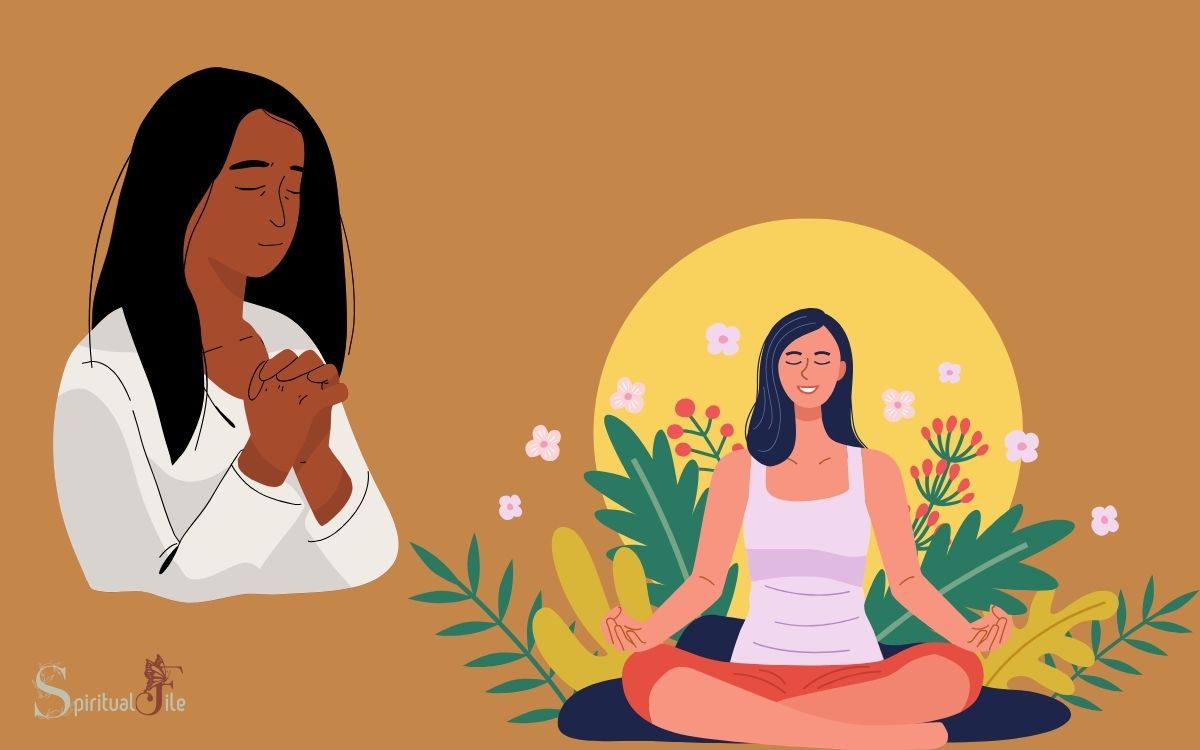
Key Takeaway
Defining Religion and Spirituality
Defining religion and spirituality is essential for understanding their impact on my beliefs and values. For me, religion encompasses organized systems of beliefs, practices, and rituals centered around a higher power or divine being.
It provides a framework for understanding the universe and our place in it. Spirituality, on the other hand, is more personal and individualistic.
It’s about seeking inner peace, meaning, and connection to something greater than oneself, often through meditation, self-reflection, or nature. While religion often involves a community and specific doctrines, spirituality is about exploring one’s inner world and finding a sense of purpose.
Both play a significant role in shaping my worldview and guiding my moral compass, offering comfort, guidance, and a sense of belonging.
Historical Perspectives on Religion
When exploring historical perspectives on religion, I find it fascinating to consider how different civilizations have interpreted and practiced their beliefs over time.
The ancient Egyptians, for instance, held a polytheistic belief system, attributing various gods to natural phenomena and aspects of life.
In contrast, the monotheistic faiths of Judaism, Christianity, and Islam emerged with the belief in one supreme deity. The Indus Valley civilization practiced what is believed to be one of the oldest forms of religion, with evidence of ritual bathing and reverence for animals.
Across history, religious practices have shaped cultures, influenced politics, and provided a framework for moral and ethical guidance.
Understanding the historical evolution of religious beliefs offers valuable insights into the diversity and complexity of human spirituality.
Modern Notions of Spirituality
Transitioning from the historical perspectives on religion, I find that my own understanding of spirituality has been influenced by the diversity and complexity of human beliefs across different civilizations.
In today’s world, modern notions of spirituality are shaped by various factors:
- Personal Growth and Self-Discovery
- Mindfulness and Meditation Practices
- Environmental and Social Justice Activism
- Integration of Science and Spirituality
- Holistic Health and Wellness Approaches
These aspects reflect a shift towards a more individualized and inclusive approach to spirituality, where people seek meaning and connection in diverse ways.
This modern perspective acknowledges the interconnectedness of all beings and the importance of finding harmony within oneself and with the world.
Understanding these contemporary influences has broadened my own spiritual outlook and deepened my appreciation for the evolving nature of spirituality. As a result, the role of rituals and practices continues to adapt to these changing beliefs and values.
The Role of Rituals and Practices
Considering the evolving nature of spirituality, exploring the role of rituals and practices becomes essential for understanding its contemporary expressions.
Rituals and practices provide a framework for connecting with the divine and cultivating a deeper spiritual awareness.
Whether it’s through meditation, prayer, or participating in communal ceremonies, these practices serve as a means of grounding oneself and fostering a sense of interconnectedness with the world around us.
Rituals can also aid in marking significant life events, providing comfort in times of distress, and offering a sense of structure and purpose.
Moreover, engaging in regular spiritual practices can help individuals maintain a sense of balance and mindfulness in their daily lives. By integrating these rituals into our routines, we can create a sacred space for inner reflection and growth.
Connecting With a Higher Power
I’ve always found that connecting with a higher power brings a sense of peace and fulfillment to my life. Whether through prayer, meditation, or other spiritual practices, this connection provides a source of guidance and support during challenging times.
I believe that seeking spiritual guidance helps me navigate life’s uncertainties and find a deeper sense of purpose.
Faith and Fulfillment
Connecting with a higher power can bring a sense of purpose and peace to my life. It provides me with a deep-seated fulfillment and a guiding light through life’s challenges.
Here are some ways in which connecting with a higher power can bring faith and fulfillment:
- Finding Meaning: It helps me find meaning in both joyful and difficult circumstances.
- Inner Peace: Connecting with a higher power brings a sense of inner peace and tranquility, even amidst chaos.
- Guidance: It provides me with guidance and a sense of direction when I feel lost.
- Strength: It gives me the strength to face adversity and challenges with resilience.
- Connection: It fosters a sense of connection with something greater than myself, leading to a profound sense of fulfillment and belonging.
Seeking Spiritual Guidance
Seeking spiritual guidance from a higher power has been an essential aspect of my personal journey towards faith and fulfillment. It’s through this connection that I’ve found solace, guidance, and a sense of purpose.
Here’s a glimpse into how I seek spiritual guidance:
| Ways I Seek Spiritual Guidance | Description |
|---|---|
| Prayer | I communicate with a higher power through prayer, expressing gratitude and seeking guidance. |
| Meditation | I engage in quiet reflection to connect with my inner self and the spiritual realm. |
| Scripture Study | I delve into religious texts to gain wisdom and insight into life’s challenges. |
| Nature Walks | Being in nature helps me feel connected to a higher power and find peace and clarity. |
| Mindfulness Practices | Engaging in mindfulness allows me to be present and open to spiritual guidance. |
These practices have been instrumental in nurturing my spiritual connection and understanding. They have provided me with the strength and insight to navigate life’s complexities and find meaning and growth.
Personal Growth and Meaning
Feeling a deep sense of personal growth and meaning in my life has been a profound and transformative experience. It has led me to explore the depths of my inner self and find purpose in the world around me.
This journey has been marked by:
- Embracing challenges as opportunities for growth
- Cultivating a sense of gratitude for the present moment
- Seeking connections with others to share and learn from our experiences
- Reflecting on past experiences to gain wisdom and insight
- Engaging in practices that nurture my mental, emotional, and spiritual well-being
This pursuit of personal growth and meaning has allowed me to navigate life with a deeper sense of fulfillment and understanding.
Navigating the Religious-Spiritual Spectrum
As I navigate the religious-spiritual spectrum, I find it crucial to explore my personal beliefs, seeking understanding and connection. It’s also important to find common ground with others, embracing shared values and experiences.
Additionally, respecting diverse perspectives allows for meaningful conversations and fosters a sense of inclusivity within the religious and spiritual community.
Personal Belief Exploration
Exploring my personal beliefs has led me to navigate the religious-spiritual spectrum in search of meaning and understanding. This journey has been both enlightening and challenging, pushing me to question and explore various aspects of my spirituality and religious inclinations.
Along this path, I’ve encountered diverse perspectives and practices that have deepened my understanding of personal belief systems.
Here are some key realizations I’ve had:
- Embracing uncertainty can lead to spiritual growth.
- Accepting differing beliefs fosters empathy and compassion.
- Rituals and traditions can provide a sense of belonging and connection.
- Questioning and seeking answers is an integral part of faith.
- Finding common ground with others can bridge spiritual divides.
This exploration has enriched my spiritual journey and continues to shape my evolving beliefs.
Finding Common Ground
Navigating the religious-spiritual spectrum has led me to seek common ground among diverse beliefs and practices. In my exploration, I’ve discovered that despite different religious and spiritual traditions, there are often shared values and principles that connect us all.
For instance, the idea of compassion, love, and kindness is central to many belief systems. By focusing on these commonalities, I’ve been able to engage in meaningful discussions with individuals from various backgrounds, fostering understanding and mutual respect.
It’s important to approach these conversations with an open mind and a willingness to learn from others.
Embracing diversity and finding common ground doesn’t mean compromising one’s own beliefs, but rather, it enriches our perspective and allows for deeper connections with those around us.
Respecting Diverse Perspectives
In my journey through the religious-spiritual spectrum, I’ve come across a wide array of perspectives that I must respect and engage with. It’s crucial to navigate this diversity with an open mind and a willingness to understand and appreciate different beliefs.
Here are some key points to consider:
- Every individual’s spiritual journey is unique and valid, regardless of their specific beliefs.
- Listening to others’ perspectives fosters empathy and mutual respect.
- Engaging in meaningful conversations can lead to a deeper understanding of diverse spiritual practices.
- Embracing diversity enriches our own spiritual growth and broadens our worldview.
- Respecting diverse perspectives does not mean compromising our own beliefs, but rather acknowledging and honoring the beliefs of others.
Navigating the religious-spiritual spectrum requires humility, open-mindedness, and a genuine desire to learn from others.
Conclusion
I believe that being religious or spiritual is like having a compass in a vast sea, guiding us through life’s journey. It provides a sense of direction, purpose, and connection to something greater than ourselves.
Whether we find meaning through organized religion or personal spiritual practices, it’s important to explore and honor our beliefs, as they shape our understanding of the world and our place in it.

